
Just to clear this up: faith ≠ positivity.
I don’t have a whole lot more to say about this specific macro, but clearly I do still have a lot to say on this general topic.
This post is going to look like some navel-gazing nonsense, and it isn’t not navel-gazing nonsense, but I think there are also one or two salient considerations for living in this fucked up race to the rock bottom of human history.
(I’ll stand by “human” history for the general trajectory of the world, but my observations here are very grounded in the U.S. of A.)

I once read an article that highlighted an interesting distinction between trust and faith, with more relevance to interpersonal relationships than to invisible deities.
The article suggested that faith can be viewed as a larger container for trust, as faith offers a way to help navigate our questions of trust when we feel that we lack sufficient evidence to accept or believe another person.
Folks who have a lot of faith in relationships, broadly, could stand to sometimes raise the bar for what creates trust because they’re apt to offer good faith where evidence has shown that trust may not be warranted. Kind of like what contemporary Christianity wants you to do: have faith in spite of apparent evidence to the contrary.
These folks may be susceptible to being taken advantage of in their close relationships.
Folks who struggle to have trust in relationships can also struggle to have faith in people, and may become a bit over-dependent on and over-demanding for hard, unambiguous facts and solid evidence. Kind of like what can get you excommunicated from a lot of Christian churches.
These folks could stand to spend some effort building a bigger faith container in order to sometimes hold a little more trust.
They are less likely to be taken advantage of in their close relationships, but they’re also probably not letting anybody get all that close in the first place.
In short, the article proposed that it’s necessary to have faith in order to build trust, rather than the other way around, because leading with trust means that faith will only ever be big enough to contain whatever trust is already there.
I tend to demand a lot of evidence because I feel like faith isn’t actually real.
Sometimes I require what is probably an excessive amount of tangible evidence to accept things that ought to be apparent with just a little bit of faith. And this ends up placing an undue amount of weight onto individual pieces of evidence, because they’re being forced to serve a larger function than they were ever intended to by anyone unknowingly providing said evidence.
An exaggerated example would be something like, “You did one thing that I didn’t like, and that is solid evidence that I shouldn’t have trusted you any of the many other times you did things I did like!”
(To the best of my recollection I have never actually said that to anyone, but if I’m being honest, variants totally come up in my thought patterns when I’m real dysregulated.)
It occurred to me that I have kind of been denying myself the option of having faith in other people, even while I’m actually putting a lot of trust in them.

The article also suggested that difficulty in trusting or having faith in others stems from difficulty in trusting or having faith in oneself.
And my initial reaction (as it often is with that kind of claim) was “Psh, I have way more faith in myself than I do in other people, even if it’s just faith that I will still be fine even after I inevitably fuck up.”
But then the article expounded with this perspective I hadn’t encountered before (it was even actually bolded in the original context):
“If the information you’re gathering (“do they meet my standards or not?”) is serving to confuse your decision-making rather than aid you in making informed choices for yourself, it is more likely a problem of trusting your ability to act appropriately based on what you know, not your ability to accurately discern information and come to know things in the first place.”
Dang.
Called out.
(Citation note: the original author goes online by The Loving Avoidant, and I acknowledge that the line I am quoting came from my Patreon subscription to their work. I don’t think it’s one of the pieces that’s freely available, so if you are interested in finding the full article I’m quoting, I think you can purchase specific articles as PDFs. Or just subscribe.)
I tend to fall more firmly into the “not trusting myself to act appropriately based on what I know” category than into the “not discerning information and coming to know things in the first place” category, so that was fun to notice.
I’ve sometimes written long essays that have eventually turned into blog posts or articles because I don’t trust my ability to respond appropriately to things I am pretty sure I have perceived.

Much more recently, I saw something online that parenthetically and consistently included the word vulnerability after the word trust, and I wondered about that choice.
In fact, that’s what made me revisit this faith vs. trust distinction in the first place. I just decided to tie it to a draft for a boring PoP macro that hadn’t inspired much prose.
It seemed like the content creator was suggesting that trust requires vulnerability, rather than framing the terms as synonymous.
It seemed off to me at first, but it’s grown on me.
Just repurposing my own sentence from above: “folks who struggle to be vulnerable in relationships can also tend to struggle with having faith in people…” I mean, that tracks.
Vulnerability doesn’t directly need to map onto trust across the board, but struggling to be vulnerable does translate pretty directly to struggling to be trusting, which still translates to not having a whole lot of faith in people.
So if vulnerability is comparable to trust here, what is the larger container that holds the vulnerability?
Is it safety? Or security?
Oh, balls, I think that’s what it is.
It’s a little semantically squidgy, because I can see faith and trust as being potentially interchangeable words in many contexts. Not that they mean exactly the same thing, but they can overlap sufficiently that there are a lot of possible sentences where the fine-grained distinction isn’t going to matter a whole lot.
For me, it feels weird to use vulnerability and security interchangeably in most contexts. (But maybe that’s just highlighting some of my own issues.)
“I trust you” and “I have faith in you” are reasonably comparable sentences.
“I feel vulnerable with you” and “I feel secure with you” do not align so much.
But I suppose “I feel able to be vulnerable with you” and “I feel secure with you” is more similar to the trust/faith pairing.
I confirmed the etymology of vulnerable, and the Latin root literally translates to “capable of being wounded.”
And honestly, I like the meaning of “I feel able to be capable of being wounded with you” better than “I feel capable of being wounded with you.”
Vulnerableable just isn’t a viable option.
So maybe my issue with vulnerability is mostly just about English morphology. Let’s say that.
Anyway, back to substituting vulnerability/security for trust/faith from the previous paragraphs:
It’s necessary to be able to have security in order to develop the capacity for vulnerability, rather than the other way around, because leading with vulnerability means that the security container is only ever big enough to contain whatever vulnerability has already been placed there.
And sometimes I require an excessive amount of tangible evidence of safety to accept things that ought to be comfortable with just a little bit of security.
Which places an undue amount of weight onto individual pieces of evidence that vulnerability is okay, because they’re being forced to serve a larger function than they were ever intended to be seen as by anyone else.
Imagine another person being like, “I was literally just not being a dick to you when you said something that seemed emotionally sensitive – I kinda thought that was a low bar?” and meanwhile in my own brain, I’m like internally sobbing “HOW IS IT EVEN POSSIBLE TO FEEL THIS SAFE.”
Fuck, that works out really well – I was honestly kind of hoping it would flop when I tried to develop it.

Before I came up with security above, I considered a sort of opposite version of faux-vulnerability, faux-security, faux-trust, and faux-faith.
And for that version, I initially thought about defensiveness (rather than security) as the larger container that holds vulnerability in that earlier metaphor.
But that’s kinda rough.
It would position defensiveness as being analogous to faith, which doesn’t exactly seem aspirational to me, but it kind of is for a lot of folks.
What a lot of folks call faith, when we bring in religion or other big picture ideologies, isn’t something that I actually want. That’s more like “blind acceptance and unquestioning allegiance,” which is more like that earlier description of someone who could stand to raise their trust bar because their huge faith container kinda hasn’t overflowed to the point of necessitating useful boundaries.
Actually, that helps with labeling: that approach to faith is more like “unboundaried trust.”
And when that’s encouraged as aspirational, and we have a comparable thing going on with vulnerability and security, that results in “unboundaried vulnerability” filling in the role of security.
Like, “I will accept an unending amount of excruciating pain and consider it to be the result of appropriate and admirable vulnerability, without having really experienced circumstances under which someone in a position to hurt me elected not to.”
This is a framework in which “willingness to put up with anything” is a substitute for security. And within that framework, in which security is defined as something inherently not all that secure, defensiveness does seem like an appropriate container to hold it in.
In a framing where we allow security to be a larger container that holds vulnerability, there’s presumably space for protection, which feels like a better umbrella for defensiveness to fall under.
If I continue to run with this parallel (which I clearly am): difficulty in being vulnerable or feeling secure with others stems from difficulty in being vulnerable or feeling secure with oneself.
Okay, that’s kind of on the nose. I won’t even push back like I initially did with trust.

I once had a long, slow anxiety attack when a friend told me that “the door is always open.”
I had been having trouble opening up about a topic that was pretty emotionally charged, but which I had attempted to initiate conversation about in the first place.
I had understood, in principle, that it was a vulnerable subject for me, but I expected myself to just feel a little uncomfortable and then barrel through the awkward disclosure to reach the side of connection. (Also not necessarily an awesome approach, but I manage a lot of things by barreling through them.)
Instead, I literally physically couldn’t make it through my own semi-planned sentences – I choked and stammered and teared up and ended up muttering something like “never mind” and bolted from the conversation, more than once.
That part wasn’t even the anxiety attack I referenced at the start of this section. My vulnerability-induced behavior was just what led to the open door offer, after I followed up to apologize for being weird.
When my friend told me that the door was always open, I felt like I should feel warm and fuzzy, but it also kind of felt like I was experiencing warm fuzziness while underwater and running out of oxygen. I was appreciative of the offer, and I understood how I should feel good about that, but instead I was deeply unsettled and increasingly anxious.
When I tried to explain my reaction to my partner, I said something like, “You know how military vets with PTSD can have trouble relaxing in, like, pleasant restaurant situations? It seems kind of like that, but just with my sense of emotional safety and not actual physical safety,” and he just kind of looked at me for a beat and blinked a couple of times and so reassure him that I was fine, I was like, “I just couldn’t think of any other analogies that work better than PTSD.”
So anyway, that eventually led to sort of a breakthrough moment in therapy that doesn’t need to be unpacked here.
The reason for bringing it up at all is that, as a result of being offered a space in which to be vulnerable, I learned to recognize some of the roots of my intense aversion to feeling vulnerable.
Which was basically like, “woah, my security container is not nearly big enough for that kind of vulnerability!”
I panicked and spiraled about that open door offer so much that it altered my perception of what emotional safety even meant to me, because I realized that I kind of didn’t believe that emotional safety could be real, and so the offer to go through an “open door” felt like a trap.
After writing a lot of rambly words to my friend, I eventually followed up to simply say “It turns out that I’m afraid of open doors.”
I still say this to myself.
There is an immature but well-practiced part of my brain that responds to anxiety, distress, confusion, anger, and plenty of other unpleasant but informative emotions by slamming shut all the metaphorical relationship doors in my life that appear to be open at any given time, and then locking my own door for good measure.
Fortunately, this mostly happens in my own mind, where it doesn’t actually impose all that volatility on my actual relationship dynamics. I do a lot of internal processing.
I’m finally to the point where I can sometimes speak gently to myself earlier in my process, and even inquire, “Hey – what feels scary about leaving that door open a crack? What might happen if we didn’t act like we have to close it right now?”
But that’s mostly just about my own door.
For me to walk fully through someone else’s open door without taking any kind of defensive stance?
That’s still a work in progress.
I am practicing trust, and I am practicing vulnerability, and fucking up at both of them is actually part of the process of expanding my available resources.
My respective faith and security containers are still being renovated.

I have often wondered about advice that encourages the practice of vulnerability for people who may not have ever actually experienced security. It’s like encouraging someone to have faith without giving them an opportunity to have basic trust.
(Says the recovering Catholic who always kind of thought that Doubting Thomas got a bad rap.)
As with vulnerability and security above, faith as a container should allow space for both doubt and trust. But for folks with that unboundaried trust I mentioned earlier, it makes sense that doubt might feel like a more logical container for trust than faith.
Isn’t that kind of something that’s been happening on a national scale, for a long time?
When we encourage vulnerability that isn’t grounded in security, and faith that isn’t grounded in trust, we wind up with folks who consider their own defensiveness and doubt to be evidence of their security and faith rather than a barrier. (E.g., “I feel mad at you, and my anger validates that you are wrong and makes me feel more secure in my own beliefs; I do not need to interrogate my own defensiveness in order to step into security” or “I have doubts about your worldview, and those questions validate my belief in my own worldview; I do not need to interrogate my own doubts in order to step into faith.”)
In that framework, it makes sense to want to eradicate the discomfort of “negative” feelings and just “stay positive.” But just as security needs to hold space for both vulnerability and defensiveness, and faith needs to hold space for both trust and doubt, it also seems to be the case that optimism needs to hold space for both positivity and negativity.

We’re all going to need to learn to cross some uncomfortable thresholds in the coming years.
I’m still afraid of open doors, but frankly, I don’t think that I’m the only one.
And knowing that makes it a little bit easier to keep my own metaphorical relationship door open sometimes, even just a crack, even when I feel like boarding it up.
But I’m just a low-profile crank who enjoys introspection.
(Also, to be clear, I’m only suggesting that it’s worth keeping my metaphorical relationship door open for relationships with more or less well-meaning people who my brain wants to vilify in the midst of panicking that nothing is safe; I’m not suggesting some inane shit like we all just need to learn to get along better with fascists.)
I think it’s worth recognizing that the practice of vulnerability and of trust looks different for folks who already have experience with security and faith than for folks whose capacity for the respective latter (vulnerability / trust) does not exceed the in-the-moment existence of the former (security / faith).
That way, maybe we could adjust the ways we encourage people to “allow yourself to be vulnerable” and to “just trust the process” so that they promote growth rather than panic attacks. (Not that panic attacks can’t eventually be part of a growth process, but I’m just saying let’s not try to create more of them.)
And conversely, maybe we could adjust the ways we encourage folks to “develop security” and “have faith” when we don’t even know what the fuck that looks like for our own selves.
P.S.
Thanks, AI.

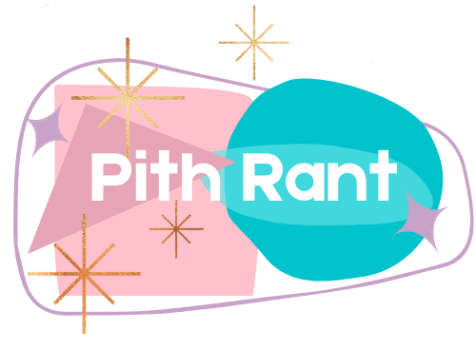
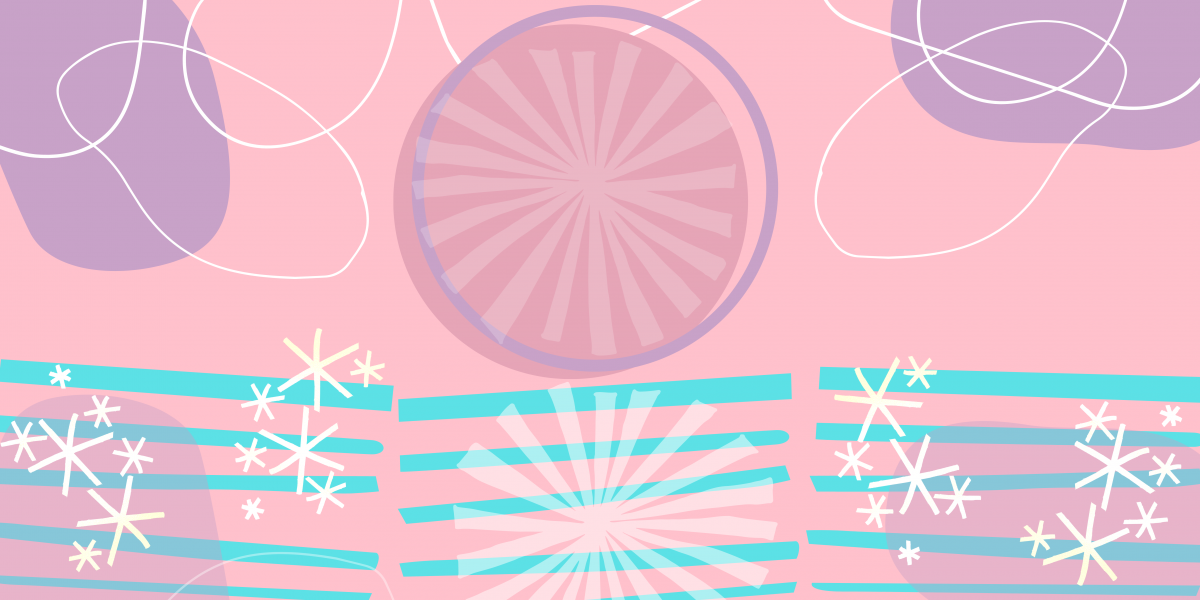
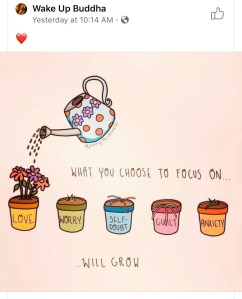


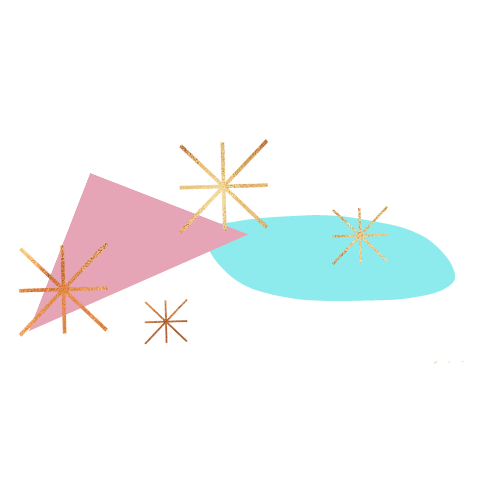
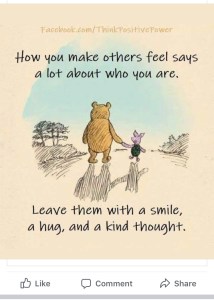



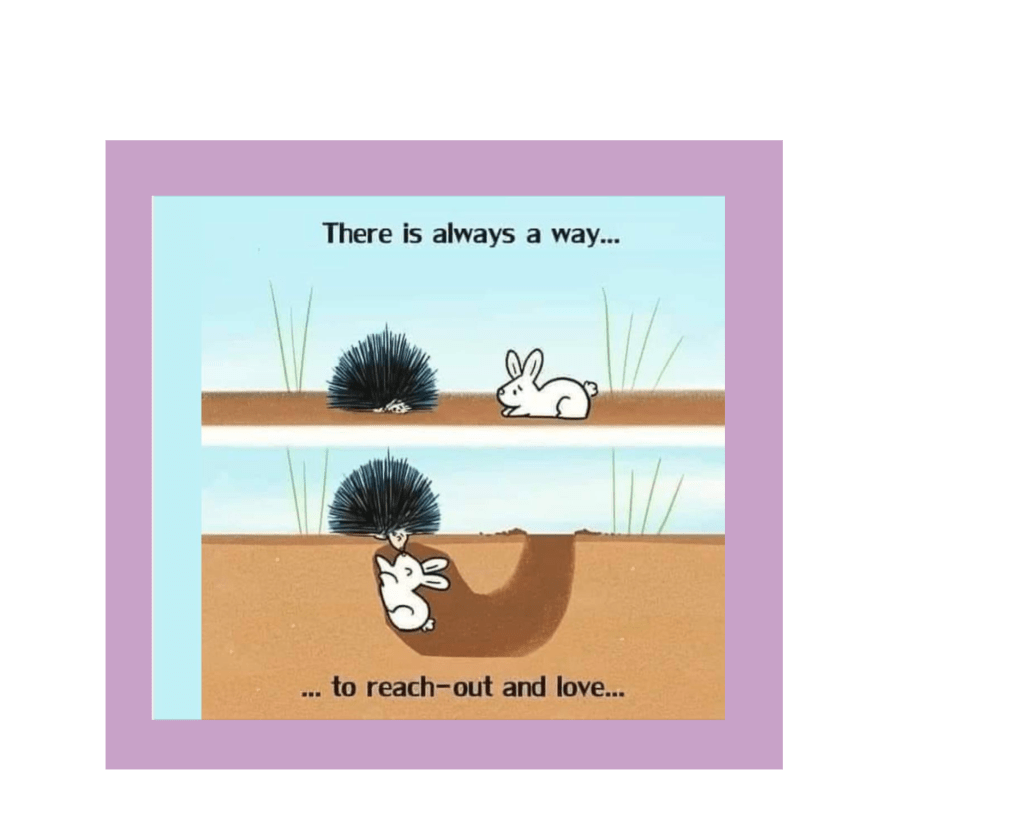
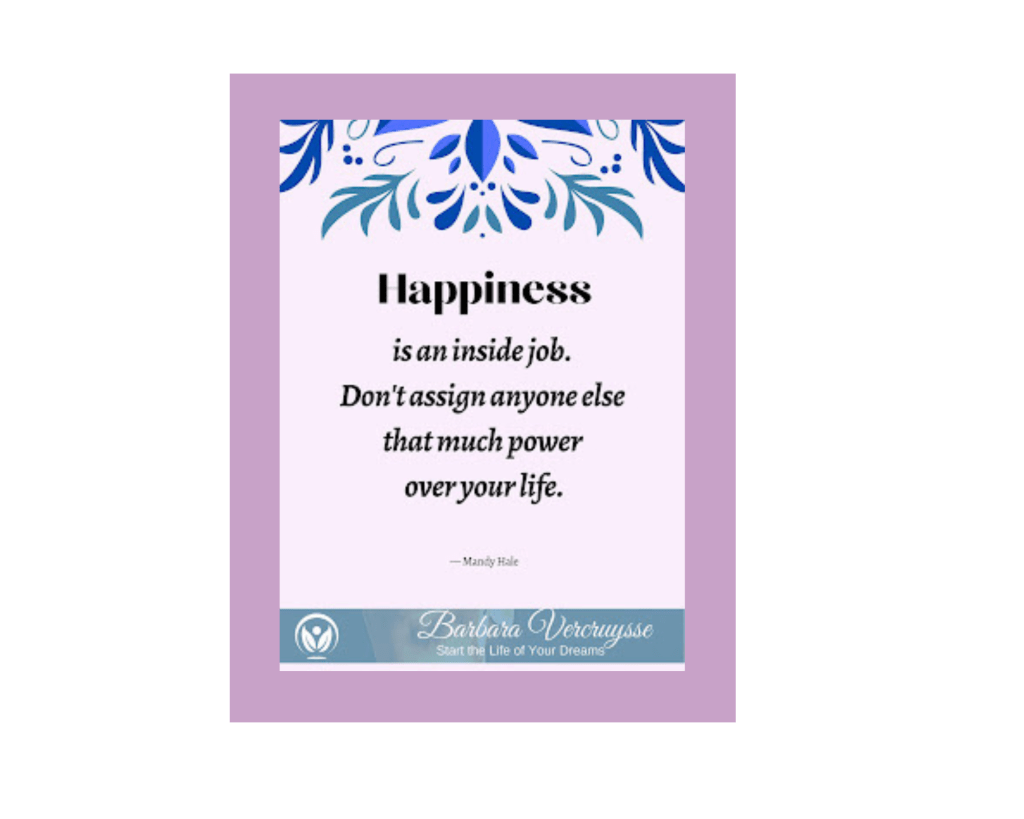
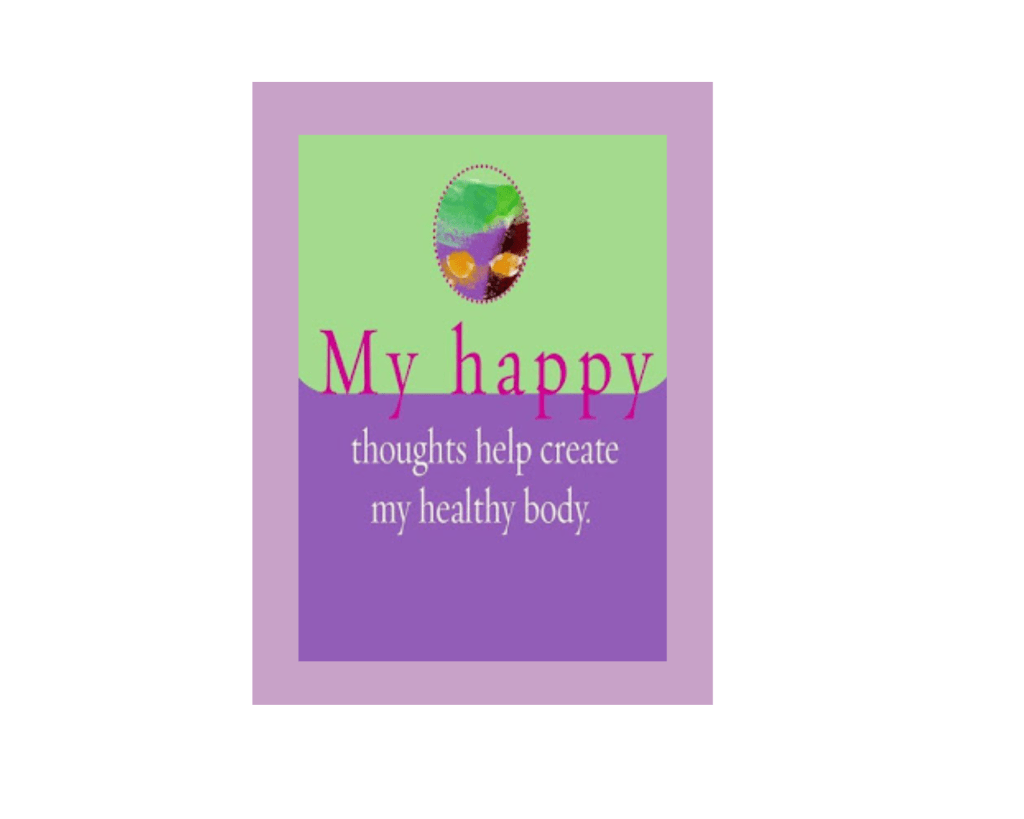
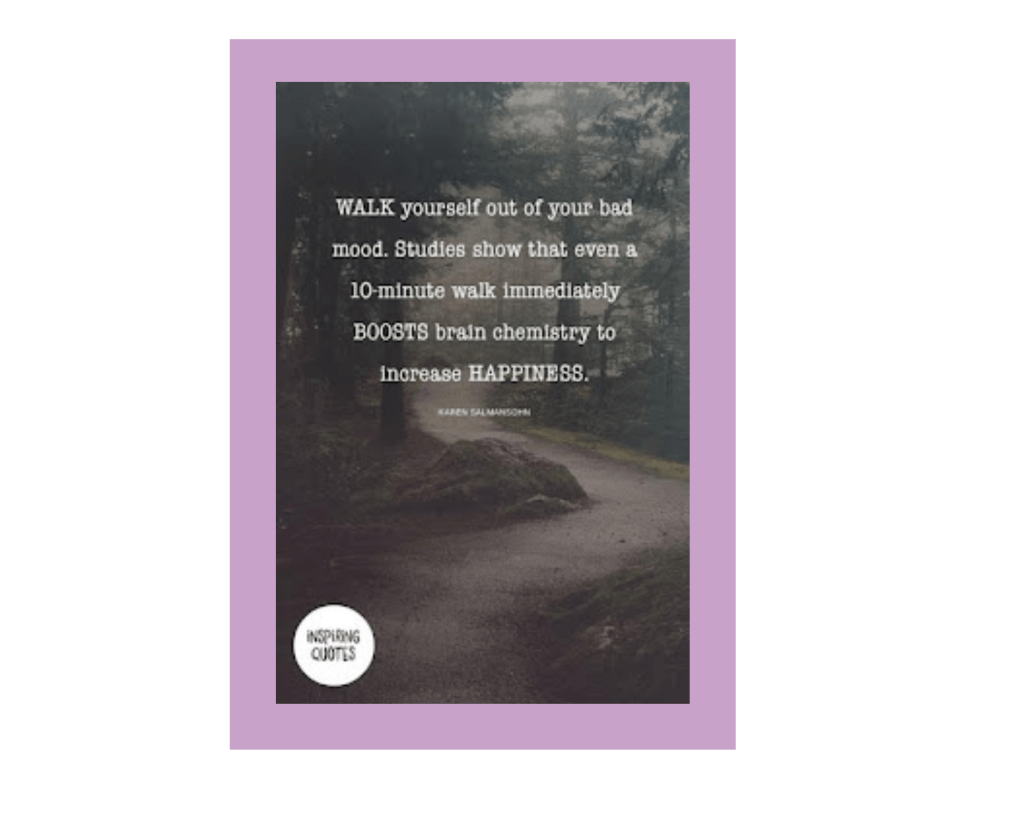
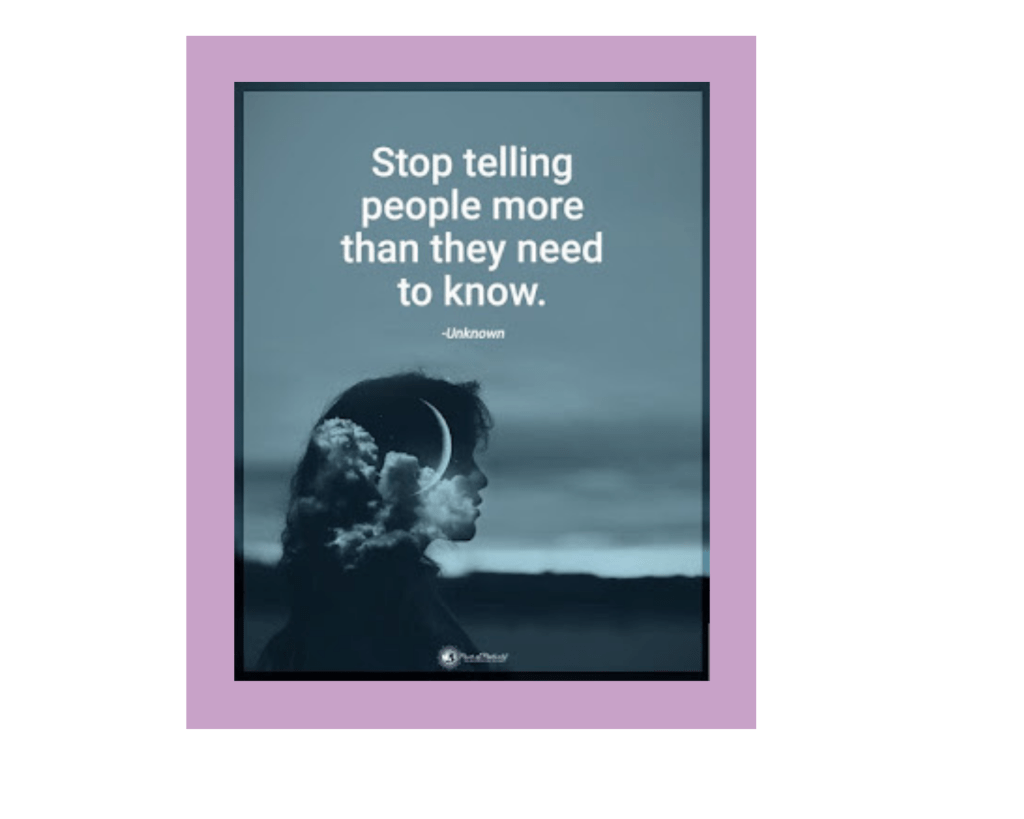
You must be logged in to post a comment.